Foundation for Rural & Regional Renewal (FRRR)
By Jill Karena, Place Portfolio Lead
Philanthropy invests significantly in communities by making grants right across Australia. In FRRR’s case, we are focused on supporting remote, rural and regional communities, especially grassroots organisations that often can’t access traditional philanthropy. However, there is no one-size-fits-all solution, which is why we offer a range of programs – some where we work deeply over multiple years through place-based initiatives to build the capacity of a group of local not for profits, and others where we work broadly through our small grants programs – offering up to $25,000, although most are around $10,000.
These small grants programs are our most in-demand which are well suited to co-funding approaches that enable collective contributions to achieve more together and create leverage for funders and communities. While not always ‘sexy’, the needs met through these grants address areas of disadvantage and basic quality of life in communities with little visibility to funders and policymakers. They range from upgrading toilets and kitchens, which improves accessibility of community facilities, to installing air-conditioners to manage climate extremes, and seed funding new ideas to stimulate new approaches to volunteering, health services, and disaster preparedness. Moreover, their value goes far beyond the dollars themselves. From more than 20 years of experience, we can safely say that in the case of many grassroots community groups, small is good.
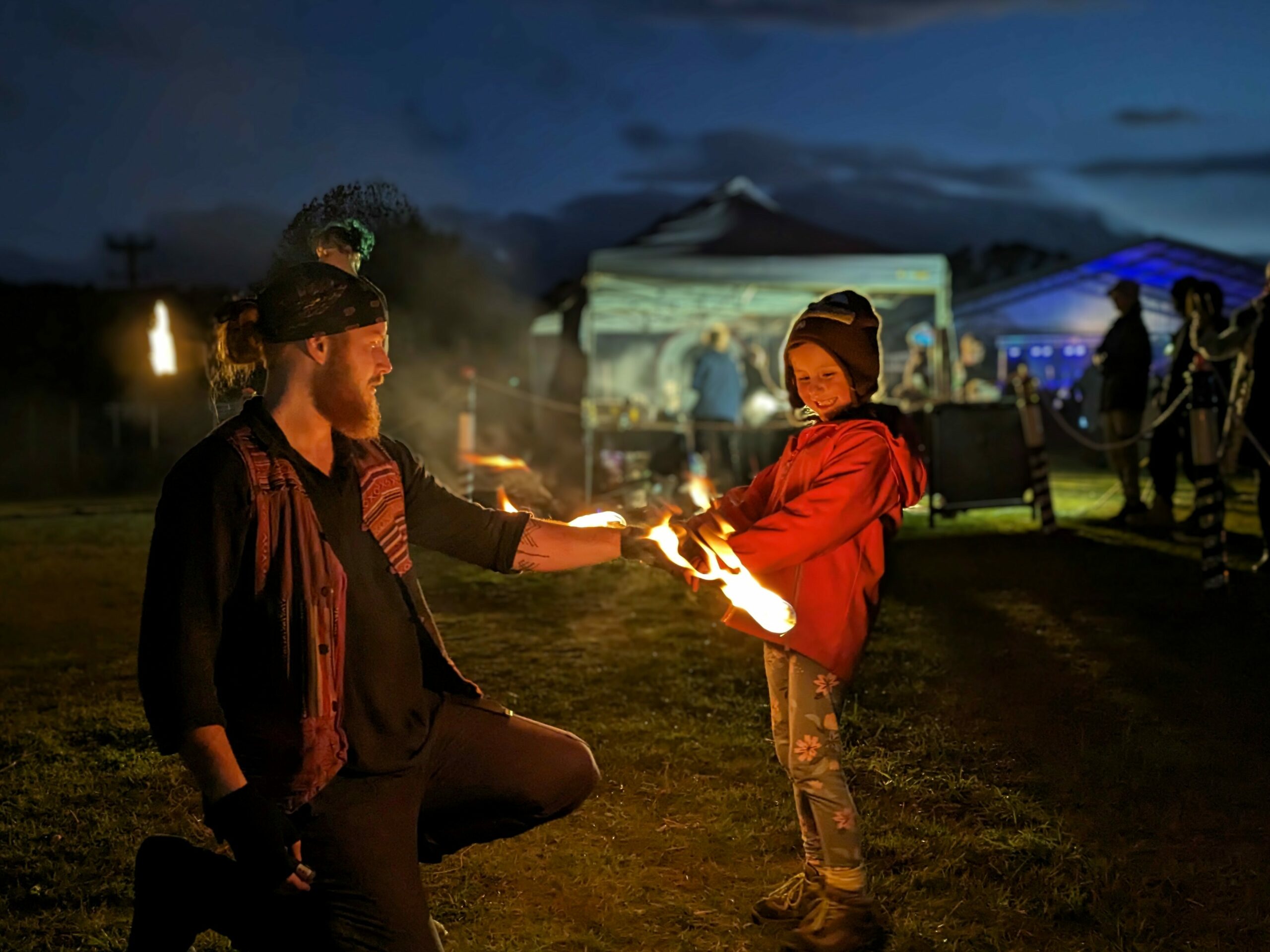
Small grants, big impact
By their very nature, small grants are simpler to navigate and have lower barriers to entry, making them more appealing to a wider range of organisations. Some grant programs, like FRRR’s Strengthening Rural Communities, also offer expert support by phone or email, making the process even easier.
Small grants can be the straightforward and friendly ‘front door’ through which grassroots organisations can step to build their capability, connect their community and navigate and drive change. In fact, for many communities experiencing disadvantage, small grants are one of the few ways that they can get the resources and opportunities to launch new ideas or approaches in their communities. And they deliver far more than just money.
Dipping a toe in, learning as they go
For communities that have not applied for funding before, small grants build their experience and confidence in developing project ideas, applying for funding, project management, budgeting and meeting reporting requirements. In the last 12 months, more than a third of Strengthening Rural Communities grant applicants (503 organisations) were first time applicants. Even if they aren’t successful the first time around, constructive feedback, such as the detailed information we always offer to unsuccessful applicants, can give them the confidence to apply again.
Biting off just what they can chew
Many communities are great at developing a long-term vision for their community that might focus on local services, economic development, environmental sustainability or climate change adaption but much as they’d like to do so, it’s simply not possible to achieve everything at once. Small grants enable a community to tackle making those big changes one project at a time. This supports them to make incremental progress against their long-term goals, while the lower scrutiny and risk associated with a small amount of funding can be less anxiety-inducing for organisations who are new to grant seeking.
Attracting more funding
Securing their first small grant is a pivotal moment for an organisation. It’s not just about funding support – it is also a recognition of the value of an organisation’s work and its ability to contribute to their community’s future. Once they’ve been successful, it’s often a catalyst for aiming higher and developing self-belief and self-reliance to create positive change in their community.
Demonstrating that they can successfully manage their first small grant and deliver tangible results builds an organisation’s credibility and can help open the door to securing larger grants to scale-up their project or take on a more ambitious idea. Often, it’s also the vote of confidence that other donors need to see to also come in and support the group’s work.
Getting to work sooner
Small grants usually have shorter application and approval timelines and offer more flexibility to enable communities to tailor projects to meet local priorities and needs, or quickly respond to unexpected disasters and other shocks. Smaller grants also usually come with fewer restrictions and reporting requirements compared to larger grants, which can often make it easier to negotiate with the funder to adapt their project if conditions change.
Finding and piloting local solutions
The flexibility of small grants also encourages communities to experiment with local problem solving, potentially sparking new approaches that are scalable or portable to other communities. Often small grants are seed funding to pilot locally generated or adopted ideas that are not of interest to larger grant programs. Using small grant funding to demonstrate the viability of a community idea can generate the evidence needed to secure larger grants or other support to bring the idea to reality.
“Thank you so much for providing the funds for this grant. This renovation has given Council initiative to support the Toy Library by maintaining the building so we can provide an inviting space and nurturing space for the community. The Toy Library has had many, many years of dedication by passionate volunteers to support and nurture the children of Tamworth and I think it deserves it!
When I started as president the library looked awful and didn’t reflect the commitment, love and pride that our small but dedicated group deserved. Now I feel like our space reflects our organisation. An important community organisation that cares and values the children, parents and carers of Tamworth and feels that learning through play is core to a child’s life and development! Another positive change is that the renovations have been a catalyst for council to complete much needed (and much requested) maintenance on the building by fixing gutters, replacing doors and cracked tiles and replacing the old sink and toilet.”
Tamworth Toy Library Incorporated
Connecting the Community
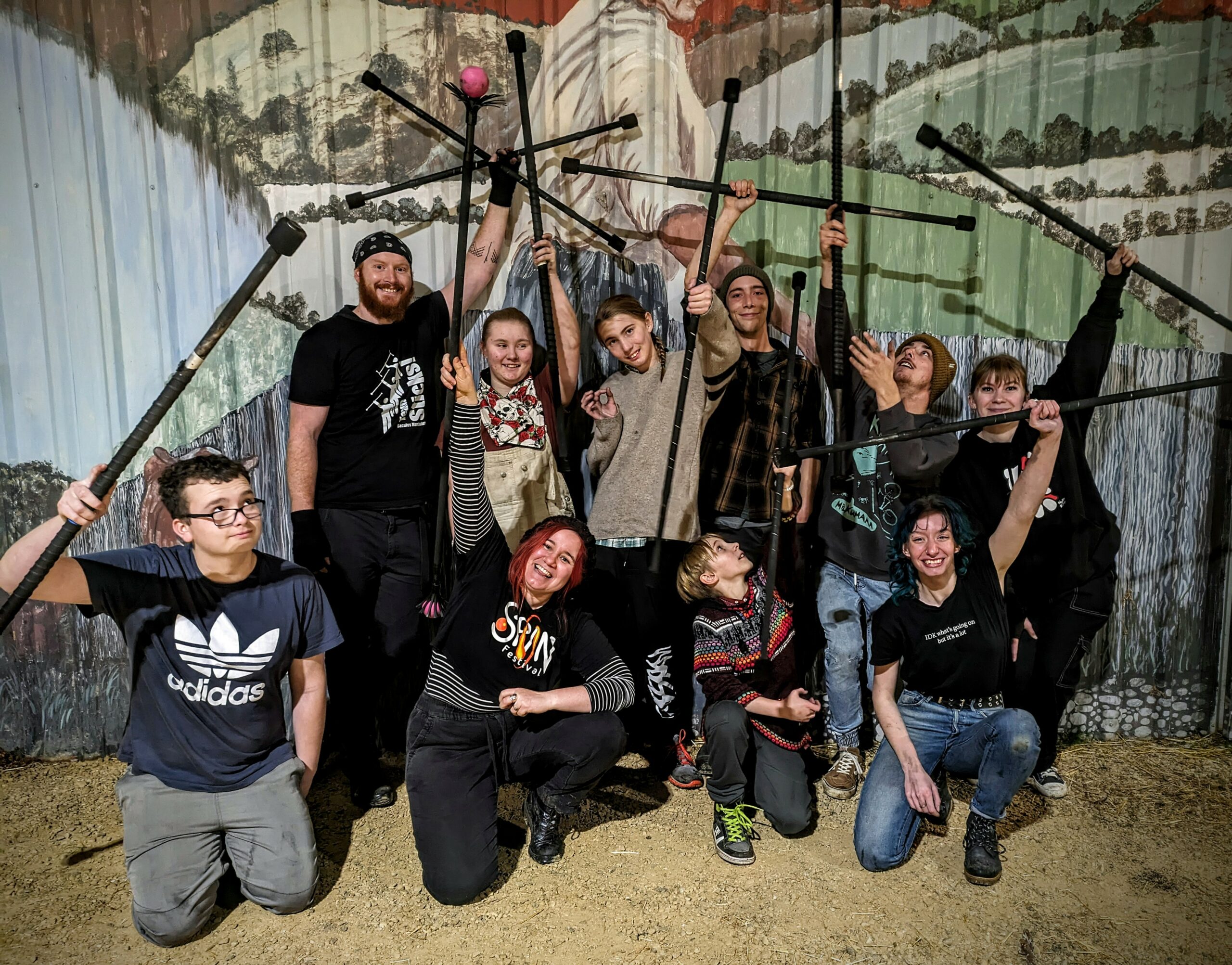
Small grants also offer a reason for different groups in the community to work together to develop and deliver projects that are meaningful and manageable. When community members, other community organisations and Local Government see the results from a small grant project that makes their community better, it is a great morale booster, and they are more likely to be motivated to get involved in future community initiatives.
“The event’s success lies in its ability to bring the community together, boost the local economy, and celebrate cultural heritage. The event provided a platform for residents to come together after the floods, share their experiences, and rebuild social connections. Through artistic workshops, events, and exhibitions, community members bonded over shared creative experiences, fostering unity and a sense of belonging.”
Arts Deloraine – festival / youth workshops (flood recovery)
Building local capacity
It’s not just the mere fact of offering smaller-value grants that makes an impact. It’s what those grants fund that also helps to build local capacity, especially in small communities or where a new group has formed. For example, many of the grants FRRR funds are about helping groups build their own capacity – whether that’s the likes of governance training or strategic planning support.
“The grant received for strategic planning has paid for itself many times over. We had members who had ideas in their head but didn’t know how to plan or implement them. Since receiving the grant, we’ve been able to increase attendance of our market to over 5000 visitors in November 2021! We’ve also been able to provide free stalls to local community groups to increase their outreach. This also has a flow on effect to small businesses in the town. The pub is booked out for lunch, little local businesses thrive due to the amazing success of the market.”
Rotary Club of Kinglake Ranges
Bigger is not always better

Often, we hear suggestions that larger grants are better – but the reality is that many of the most deserving groups in the smallest and most remote locations simply will not – or indeed simply are not able to – apply for many of those grant opportunities.
While it’s great to see larger grants made available to communities, especially through Government programs, it is critical that we not lose sight of how important small grants are in strengthening capability and capacity in remote, rural and regional communities. Small communities, as you might guess, are, well… small! This can make it hard to compete with larger communities, especially when it comes to demonstrating measures of impact which funders often ask for – small communities can’t point to economies of scale or large numbers of beneficiaries.
With fewer people to draw on, volunteers are often stretched and there are less likely to be paid resources or an experienced grant writer to chase high-value grants or manage large-scale projects. Groups often won’t apply because they don’t have the capacity to meet the reporting requirements or to manage the other governance expectations, such as the frequency of reporting or detailed probity plans. Even the prospect of managing large sums of money can be scary for a first-time grant applicant and some small communities can find it simply overwhelming!
What makes small grants so impactful in rural and remote Australia is their flexibility and relative simplicity, which means they’re more accessible and attractive to those communities that don’t have the resources to wrestle with the complexities of large grants. So we urge all those who are working so hard to grow the funds that are directed via the social sector to make sure that small grants continue to be a key stream of funding. If you’re funding large grants, consider coupling that with some smaller grant funding as well – they may well become organisations you’re able to fund in the future. Or, if you’re funding with a very tight focus, consider how small grants with more flexibility may bring unexpected pathways to that impact. Of course, we always welcome more partners for our collaboratively-funded Strengthening Rural Communities program, so get in touch if you’d like to know more.
It’s no secret that risks presented by our changing climate loom large. The communities FRRR serves are particularly vulnerable to the impacts of increasingly frequent and severe natural disasters and climate extremes. These impacts threaten to exacerbate existing social and economic inequalities, and negatively affect the liveability – and therefore the sustainability – of these communities.
As the Australian Government’s 2022 climate change statement noted:
“Our weather is becoming increasingly variable. More frequent extreme and cascading weather events are impacting our communities and economy, disrupting lives, and threatening our environment. At the same time, summers are becoming steadily hotter and drier, leading to adverse health impacts, increased bushfire risks and ecological damage, and threatening agricultural production. We must anticipate, prepare for and adapt to the impacts from our warming climate. Second, we must mitigate further catastrophic climate change by reducing our own emissions and playing a leadership role in supporting other nations to reduce theirs. Both will require an economic transformation on a scale beyond anything we have experienced in our lifetimes.“
While FRRR has seen an increase in applications we receive that are focused on disaster preparedness efforts, there has been markedly less focus on embracing practices and solutions that reduce the impact of the changing climate or capitalise on opportunities. Often this isn’t for want of great ideas, but rather limited access to funding and capacity to investigate options, particularly for not-for-profit (NFP) groups who want to be proactive and undertake community-led projects.
That’s why, with the support of generous seed funders, we are launching a Community-led Climate Solutions program. We’ve seen time and again that when we can offer dedicated funding around a particular issue – such as In a Good Place (targeting mental health) and Telstra Connected Communities (targeting the digital divide), amazing things happen. All too often it only takes relatively modest funding, backed by volunteers, to bring these projects to life.
So, we intend to offer funding to NFP groups twice a year to help them leverage the incredible knowledge, innovation and commitment in rural areas to implement locally-led climate solutions. The grants will aim to support three key areas:
- Drive engagement, education, and leadership in remote, rural, and regional climate solutions;
- Activate locally-led opportunities to advance energy transition, climate adaptation, decarbonisation and circular economies; and
- Support just transitions to new clean economies for thriving communities.
These different objectives will allow community groups to take action that reflects the most pressing issues in their community, but also recognises that the conversation is unfolding in different ways, and at a different pace in different regions. Some will be ready to take bold action to capitalise on the opportunities from the transformation of our industrial sector, while others will need support to build understanding and drive engagement towards the prospect of a different future. We need initiatives that are designed by each community, that will work for their context.
The grants could potentially fund projects like these, which FRRR has previously supported:
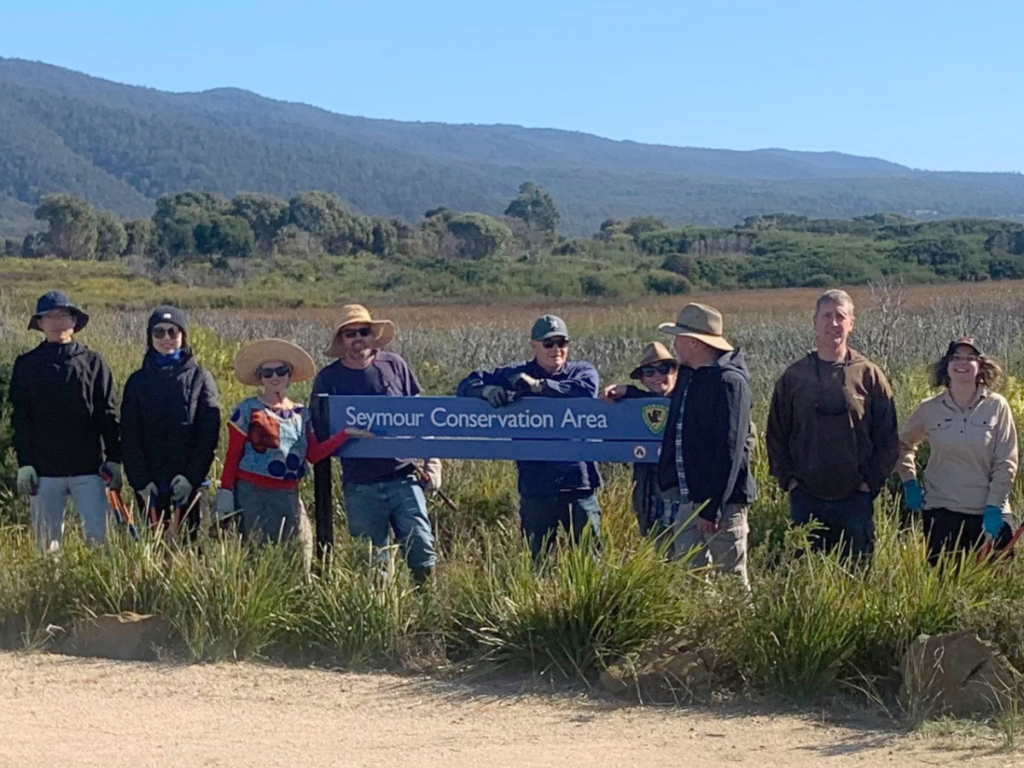
Seymour Community Wetland Restoration & Reclassification Project, TAS
A $10,000 grant was awarded from FRRR (proudly supported by IKEA) to fund weed control and restoration of the Seymour Wetland Reserve (including workshops on Seed Collection, Propagation and Restoration). The work of the volunteers, together with professional support from this funding, resulted in the Reclassification of the project area in June 2022, to double the size of the Seymour Conservation Area, contributing to restoration of native species (over 650 trees have been planted by the group) and decarbonisation. The media exposure from the Reclassification attracted new members and enrolled others in the community to become more active in the Conservation area.
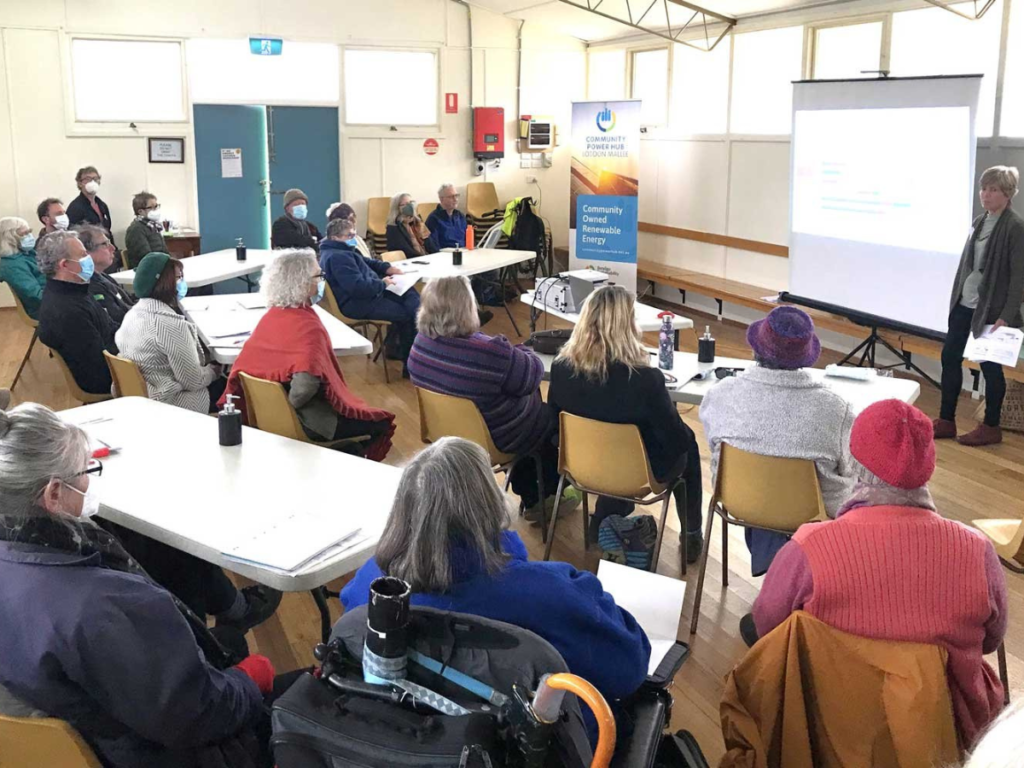
Bendigo Sustainability Group, Regional Community Energy Workshops, VIC
The Bendigo Sustainability Group (BSG) has been operating for 10 years. Over that period, BSG has been involved in the successful delivery of a wide range of projects and programs, creating awareness around sustainable living, renewable energy options, climate change and the need for decarbonisation.
This $10,000 grant funded by FRRR, with the support of the Community Foundation for Central Victoria, has enabled BSG to deliver free, engaging and informative workshops on energy efficiency and renewable energy in small towns throughout the Loddon Mallee region. As a result, they have also been able to identify and support the development of community renewable energy projects to enhance the resilience of these communities.
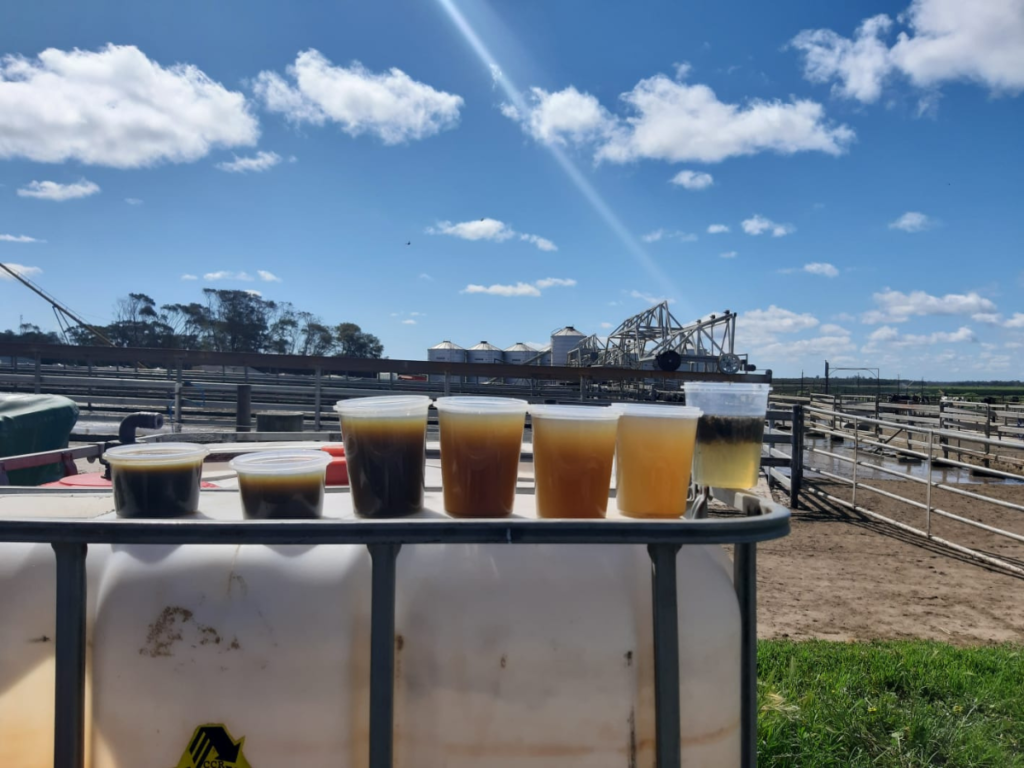
Augusta Margaret River Clean Community Energy Incorporated, WA
The Dairy Waste Energy Study project was part of Shire of Augusta-Margaret River’s ambitious plan to operate at net zero carbon emissions by 2030. AMRCCE wanted to investigate creating biogas from dairy manure waste, while also diverting effluent from nearby water sources. The project utilised an FRRR grant to partially fund the study, which assessed the Butane Methane Potential contained in dairy waste from a large dairy farm in the Scott River area in the Augusta Margaret River local government area. It was an important precursor to the planning and development of what could be an aggregated biogas and renewable power grid connected facility, and was involved in a PhD study and associated scientific paper.
More than money
In addition to the funding, grantees will have access to FRRR’s capacity building expertise and guidance, to help them shape their projects and, in time, we will also seek to connect these groups to leverage learnings across communities. We’re also keen to connect these organisations with businesses who may be able to provide one-off or ongoing pro-bono support. This program will also focus attention and promote conversations to catalyse additional community-led solutions.
Further, by analysing application data and by tracking impacts, FRRR will be able to generate insights into how communities are activating climate solutions and identify what additional support may be required, or what barriers NFP groups are facing.
Join us?
Thanks to generous seed funders, FRRR is set to launch the program’s first round at the end of October 2023, but we know this program will be in high demand, so we’re looking for additional partners to walk alongside us and enable rural communities to access climate solutions focused funding well into the future.
If this is something you are interested in learning more about, please contact either Sarah Matthee or Jillian Kirwan-Lee via partnerships@frrr.org.au.

